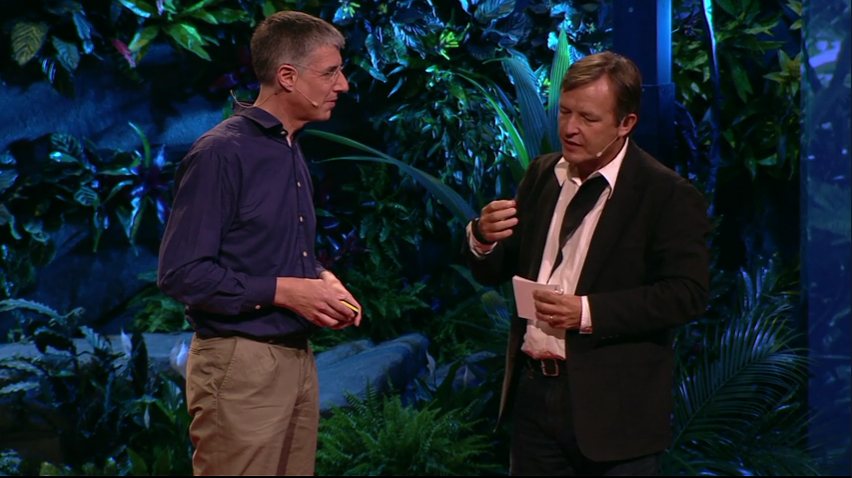Quick question for you, Dan. So you're a movement -- (DW: Chauvinist.) -- chauvinist.
我問一個簡短的問題。所以你是一個運動--(沃:沙文主義者。)--沙文主義者。
Does that mean that you think that the other things we think our brains are about -- the dreaming, the yearning,
是不是意味著你認為我們覺得讓大腦有存在意義的其他事情--那些夢想、渴望、
the falling in love and all these things -- are a kind of side show, an accident?
戀愛等等一切東西都是些余興節目或者意外收獲呢?
No, no, actually I think they're all important to drive the right movement behavior to get reproduction in the end.
不,不,其實我認為這些也很重要,它們能促使合適的動作行為,以達到繁殖的最終目的。
So I think people who study sensation or memory without realizing why you're laying down memories of childhood.
所以我覺得有些人在研究感覺或者記憶,卻沒意識到為什么我們要記下童年的回憶。
The fact that we forget most of our childhood, for example, is probably fine, because it doesn't effect our movements later in life.
我們會忘記大部分幼年的記憶這個事實,比如說其實應該無關緊要,因為那些不會影響我們長大以后的動作。

You only need to store things which are really going to effect movement.
我們只需要存儲能對動作產生真正影響的事情就行了。
So you think that people thinking about the brain, and consciousness generally, could get real insight by saying, where does movement play in this game?
那你是否認為人們研究大腦,以及更籠統的意識,如果要獲得真正的領悟,就要問動作在這里起了什么作用?
So people have found out for example that studying vision in the absence of realizing why you have vision is a mistake.
人們已經發現,比如說在不明確視覺何以存在的時候,就去研究視覺是個失誤。
You have to study vision with the realization of how the movement system is going to use vision.
研究視覺的時候,我們必須先意識到運動系統要怎樣用這個視覺。
And it uses it very differently once you think about it that way.
這樣想的時候用法就不一樣了。
Well that was quite fascinating. Thank you very much indeed.
哦,確很有趣。非常感謝你。











